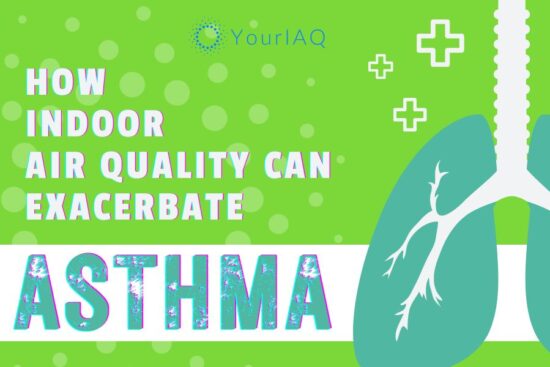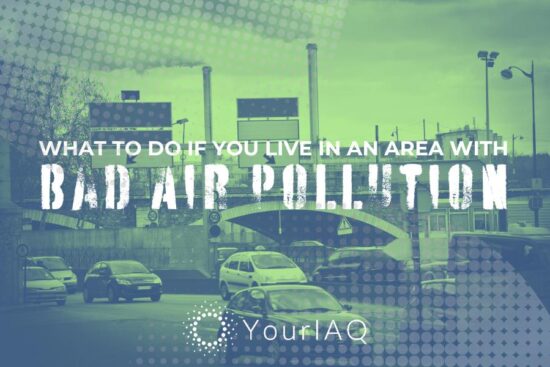
Indoor air quality might seem like a topic reserved for health buffs, but there’s a financial dimension that’s often overlooked. Given that we spend almost 90% of our lives indoors, the economic benefits of air quality within our homes and workplaces are more critical than many realize. Let’s delve deeper into how clean air can lead to economic benefits.
1. Healthier People, Lower Healthcare Costs
One of the most direct economic benefits of improving indoor air quality is the potential savings in healthcare. By breathing cleaner air, there are fewer instances of respiratory issues, allergies, and asthma. This adds up to fewer doctor visits, hospital stays, and medication expenses.
Government agencies have even quantified these potential savings. They estimate that better air quality could save billions annually in healthcare costs. Beyond individual savings, this has a broader impact. With fewer sick days taken by employees, entire industries would benefit from more consistent work rates and productivity.
2. Productivity Gains from Healthier Populations
It’s not just about fewer sick days. When people are healthier, they’re inherently more productive. Clearer cognitive function, reduced fatigue, improved concentration, and overall better physical and mental health are direct benefits of clean air.
For example, over the course of a long day, the buildup of carbon dioxide (CO2) indoors can lead to increased fatigue among occupants. This is because high levels of CO2 reduce the oxygen available for brain function, leading to decreased alertness and productivity. A study published in the Environmental Health Perspectives journal found higher CO2 concentrations in indoor environments can significantly impair decision-making performance.
Managing indoor levels of pollutants such as CO2 can lead to increased productivity. Widespread healthy air can have a ripple effect on the broader economy, leading to more robust economic growth. Research has shown that the benefits of clean air can lead to as much as a 10% increase in workforce productivity. This could translate to billions added to the national GDP every year.
3. Reduced Insurance Premiums
It’s not just individuals and businesses that stand to gain from improved air quality. Insurance companies, which often pay out for health issues resulting from poor air quality, can also benefit significantly. Fewer insurance claims mean fewer payouts, leading to the possibility of reduced insurance premiums for consumers. Over time, this could mean substantial savings for both individuals and businesses.
The same can be said for homeowners insurance. Managing indoor air quality contributes to protecting and securing property. For example, identifying and mitigating pollutants in the air prevents the potential risk of long-term damage to homes, leading to fewer claims.
4. Cutting Costs with Fewer Home Renovations
A hidden but substantial benefit of good indoor air quality is its potential to save homeowners money in the long run. Homes plagued by poor air quality often face persistent issues like high humidity and mold growth, which can damage structures and lead to expensive renovations. By investing in air quality, homeowners can avoid these unexpected costs and ensure a healthier living environment.
5. The Legal Perspective: Reducing Costs
In our litigious society, the legal ramifications of poor indoor air quality cannot be understated. As awareness grows, so do legal suits related to ailments caused by unsuitable indoor environments. Businesses that prioritize indoor air quality can significantly minimize such legal risk. This not only safeguards their reputation but also saves them from potentially hefty legal costs.
6. Better Preparedness for Natural Disasters and Extreme Weather
Climate change ushers in more frequent and severe natural disasters. As such, homes and commercial buildings with efficient indoor air systems are in a better position during these crises. A robust ventilation and air purification system can filter out pollutants from events like wildfires, ensuring the safety of inhabitants. This not only guarantees safer living and working conditions during emergencies but also translates to cost savings on health or renovation needs post-disaster.
Economic Benefits of Indoor Air Quality: FAQ
1. How significant are the economic benefits of improved indoor air quality for businesses?
Beyond just the health of employees, businesses can experience gains in productivity, enjoy reduced insurance premiums, and dodge hefty legal fees, all translating to a healthier bottom line.
2. As a homeowner, what savings can I expect from better air quality?
Homeowners can anticipate reductions in medical expenses, potential savings on homeowners insurance, and avoid costly home repairs due to air quality-related damages.
3. Can enhanced air quality systems help during natural disasters?
Yes, top-notch indoor air systems can keep out hazardous pollutants, ensuring a safer environment during crises and cutting down on subsequent costs.
4. How can I best improve my home’s air quality?
Invest in high-quality air purifiers, maintain HVAC systems, use low-VOC products, and ensure proper ventilation.
Read more: Test and Take Action: How to Improve Your Home’s Indoor Air Quality
5. Does indoor air quality truly outweigh the importance of outdoor air quality?
Both are vitally important. However, given our tendency to spend the majority of our time indoors, the quality of air inside our personal and professional spaces has a more direct impact on our daily lives and financial well-being.







